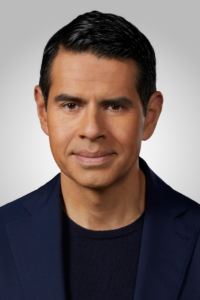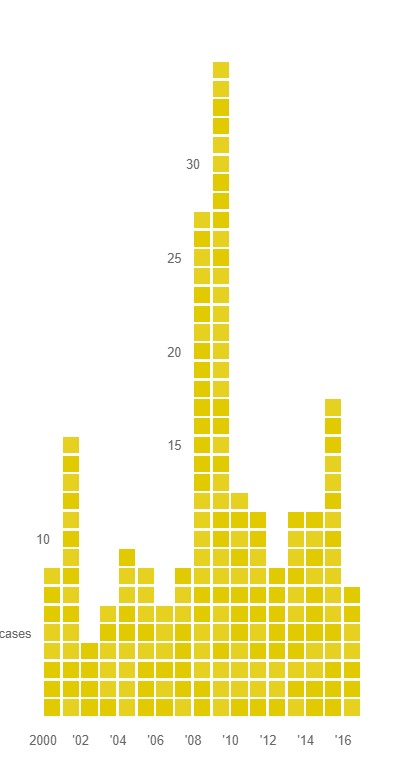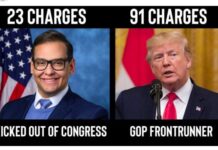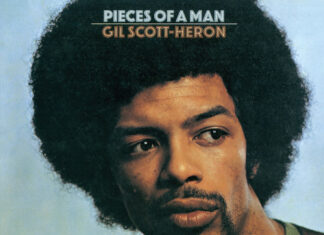What’s Wrong With Cable News TV–Part 2
NBC is greedy. It promoted Trump on “The Apprentice” even as lawsuits against him were rising. He was a failed businessman, and NBC knew it but didn’t care. They created his myth in search of profit.
The news that CNBC and MSNBC may be up for sale is a long time in the making. NBC has been seeking a direction for years and has lost its way as a news organization that has failed to adapt to social media continues “news,” which is not news; even though the Network has much higher journalistic standards than FOX, social media, podcasts, Newsmax and other right-wing sites. CNBC is straight financial news, so it has a purpose.
MSNBC evolved the mistaken idea of “talk cable TV,” similar to talk radio, but much more boring. The MSNBC announcers who practice “talk cable TV,” such as Ari Melber, Rachel Maddow, Jen Psaki, Chris Hayes, Joy Reid, and others, don’t have the material, staff, TV presence, or intellectual horsepower to do more than 30 minutes by themselves. They lack the mental and creative ingredients to keep their political opinion soliloquies interesting.
The exceptions at MSNBC are Lawrence O’Donnell and Ali Velchi. O’Donnell is an accomplished author, screenwriter, and commentator who has mastered the political facts he gained as a legislative aid. The other is Ali Velchi, formerly a Canadian senior economic and business correspondent for NBC News, and now an anchor for MSNBC. Not surprisingly, he is also a substitute anchor for The Last Word with Lawrence O’Donnell.
Unlike most other MSNBC announcers, O’Donnell has definite views and is not afraid to criticize or ask tough questions of the people he interviews. Similarly, Velchi is also authoritative and not afraid to ask tough questions. In an exciting experiment, MSNBC originally aired Velchi, a political and business correspondent, with Stephanie Ruhle, a former Wall Street trader who asks tough questions. This pairing did not last long. Maybe this combination could have been too provocative as they examined the delicate terrain of the U.S. political economy. In any case, the Velchi-Ruhle team was short-lived.
This may surprise MSNBC executives, but audiences like real intellectually inspired emotions rather than flat round table interviews where the participants sit with their hands folded and ignore obvious factual misstatements because interrupting is impolite. If MSNBC executives don’t know, everyone at the table will look like a wimp or a paid hacker. It is also a reason Trump and his allies have been able to go on CNN and MSNBC for years while they told lies and no well-paid news announcer ever challenged them.
One good example of MSNBC’s bad choices when hiring on-air announcers is the appointment of Jen Psaki, a former White House press secretary. Psaki has never been a

journalist. Instead, she was a press secretary for various candidates. In that job, she was concerned with the politician’s image and shaping facts to support a narrative. She may have worked in the White House as a press secretary, again worried about image, not news, but she has never used those contacts to break a story for MSNBC, which a news organization would value. MSNBC mistakenly hired her if they thought she would have news contacts. It looks like she has none or does not want to break the confidence of her ex-White House co-workers to make a news story. The same can be said about Andrea Mitchell, who started in 1967 under the old regime of TV news and was a journalist but is now well past retirement.
These examples may show the big differences between print journalism and cable TV news programs. In print journalism, reporters had a beat and were expected to produce resourced, verifiable stories that were then vetted by editors. That framework may exist at the local level of U.S. cable TV but not at the big networks. In cable news, on-air personalities are supposed to attract viewers, but most of the MSNBC crew are sleepers.
MSNBC Needs a New Cable TV Formula
The formula for cable talk TV was an obvious mistake. The theory may have been that guest panels, comprised of two to four people, could save the day, but discussing the same events days after they happened with no new facts is the definition of boring. The panels, too, are often comprised of the same regulars who appear daily, but the announcers try to keep a straight face as they ask these same educated people the same questions day after day. Hypotheticals, “what-if” scenarios, “what else could they do”-type questions, and other time-killer questions are evident in these panel segments.
MSNBC must also have a very big checkbook but with few checks on what they pay. Rachel Maddow is not worth $30 million yearly for hosting a once-a-week show. She repeats herself even for $30 million and has more theatrics than substance. In contrast, the much more substantive and intellectual Fareed Zakaria on CNN makes $5 million a year for a one-hour show once a week. His show is divided into three or four segments, with an interview with an expert in each segment. It’s a substantial show with high journalistic standards. Why does Maddow get $30 million for repeating herself, while Zakaria gets $6 million? The MSNBC boss should answer that question to shareholders.
The deficiencies in “What’s Wrong With Cable TV,” found on this website, examined how cable news programming must consist of panel discussions, rehashing of the same news, endless opinions from experts and non-experts alike, and repetition to fill the show’s time slot.
The essential characteristic here is repetition. This can be achieved by re-reporting the same story in every segment for the entire day, repeating the duplicate loop footage of the event numerous times in a 20-second clip, or having different panels discuss the same news event.
This happens despite the false promise that cable TV news is global. But if you watch the shows, they focus on very few national stories.
Why Would NBC Think of Hiring the Head of the Republican National Committee?
In March 2024, NBC again showed that it had lost its way when it made the terrible decision to hire Republican National Committee chair Ronna McDaniel as a paid network contributor for a reported $300,000 yearly.
The decision was immediately greeted with protests outside the NBC executive suites, but it showed the executives’ poor judgment. About a week later, NBC rescinded the offer under protest from its staff.
The problem was that McDaniel was a serial liar and MAGA hack.
In the past, McDaniel has:
- Denied that President Joe Biden won the election;
- In September 2020, she defended President Trump’s response to COVID-19 and suggested that his opponents were “disgusting” for attempting to politicize it;
- In November of last year, she decried a supposed “two-tier system of justice” targeting Republicans and alleged corruption on the part of President Biden’s son Hunter;
- Thinks it is acceptable for Trump to ask donors to pay his legal bills;
- Denies Trump was responsible for the insurrection at the Capitol on January 6;
- Agrees with Trump’s promises to free those jailed for crimes related to the January 6 Capital attack if he is re-elected.
McDaniel is an ardent Trump supporter and MAGA loyalist. But she was not loyal enough to the sociopath Trump, so she was dumped by Trump’s hand-picked team in a Republican Party coup. Trump aims to control the party’s cash coffers and MAGA platform.
However, despite McDaniel’s role as a verifiable propaganda disseminator, she would get $300,000 annually from the NBC “news” network.
NBC’s terrible decision to hire her was made by NBC News president Rebecca Blumenstein, senior vice president of politics Carrie Budoff Brown, and Cesar Conde, chair of NBC

Universal News Group (net worth: $20 million). These people have too much time on their hands. They are too insulated from the American public if they think hiring an insurrectionist defender and election denier serves journalism and their corporate reputations.
As an example of her out-of-touch reasoning, Carrie Budoff Brown, the NBC News executive with direct oversight of political coverage and “Meet The Press, said in a memo that “It couldn’t be a more important moment to have a voice like Ronna’s on the team.” Brown said McDaniel would offer “an insider’s perspective on national politics and the future of the Republican Party.”
Based on the almost unanimous response, Brown has no idea who is on her “team.” She would be fired if she were the coach of a Little League team for making this lousy mistake. But NBC is too frail for that. If NBC shareholders want to sue to get back the wasted $300,000, the heads of those who made this decision should go right ahead. Odds are they will win.
NBC is a Troubled Network
Despite its highly regarded journalistic history, NBC has fallen into the 24-hour cable news tarpit. Like CNN, it struggles to find an exciting 24-hour news journalism model, so it relies on panel discussions and repeating the same stories throughout the “news cycle,” whatever that is, to keep viewers from changing stations. In the process, they have hired right-wingers from FOX and minimized the appearance of progressive guests and newsreaders.
Remember that NBC developed and aired Donald Trump on “The Apprentice” reality show, which ran in various formats across fifteen seasons on NBC from 2004 to 2017. “The Apprentice” was created by British television producer Mark Burnett and co-produced with Trump, the show’s host for the first fourteen seasons. NBC gave Trump to American audiences.
By 2004, Trump already had a shaky business background and was already solidifying his reputation as suing and being sued in local, state, and federal courts. If NBC had done a cursory background check, the same check they would do for an average employee, they would have found that Trump was not the successful businessman they were portraying in the show and presenting to unsuspecting Americans.
This chart from Bloomberg and the accompanying story lists Trump’s lawsuits and shady background. As this chart shows, when NBC hired Trump in 2004, and throughout his time on the show, Trump’s lawsuit record was accelerating, yet NBC acted as if he was still the proverbial successful businessman.

Why did they do this? Aside from being greedy, they did not want to admit that they were promoting the Trump fraud and that their original decision from Burnett was a mistake. We can safely presume that the top execs at NBC who approved the Burnett proposal could not admit their mistake. It was a coverup. Besides, they were collecting big salaries and were years closer to retirement. Like other execs in this same position, cleaning up their mess would be left to others.
The current NBC execs who hired McDaniel are probably thinking the same thing. How many years until retirement will their golden parachute be revoked for making a lousy decision that costs shareholders millions?
Does NBC Like to Deceive its Audience?
Hiring an election denier and MAGA hack like McDaniel is a wrong decision for anyone with a journalism degree.
It’s clear that the top executives who made the hiring decision—NBC News president Rebecca Blumenstein, senior vice president of politics Carrie Budoff Brown, and MSNBC boss Rashida Jones—all have too much time on their hands and are flailing to make NBC more interesting. They failed.
Their failure is the same one NBC made when it hired the shady businessman Trump to host “The Apprentice.” But they kept the charade because the show was popular and made money. Money over truth is what cable TV is all about. Just look at Rupert Murdoch, the people at FOX, and the other right-wing medicine men and women like Sean Hannity, Tucker Carlson, Mark Levin, Laura Ingraham, and the late Rush Limbaugh.
McDaniel has denigrated journalists and pushed the MAGA agenda, which is based on propaganda propelled by a criminal and insurrectionist. No legitimate newsperson would want to be in the same room as McDaniel, yet these top NBC execs thought they could all sit side-by-side in the company dining room without any problems.
The hiring decision by these top executives further stains NBC’s reputation, is a waste of shareholders’ money, and indicates that you don’t have to be too bright to be an NBC exec.











